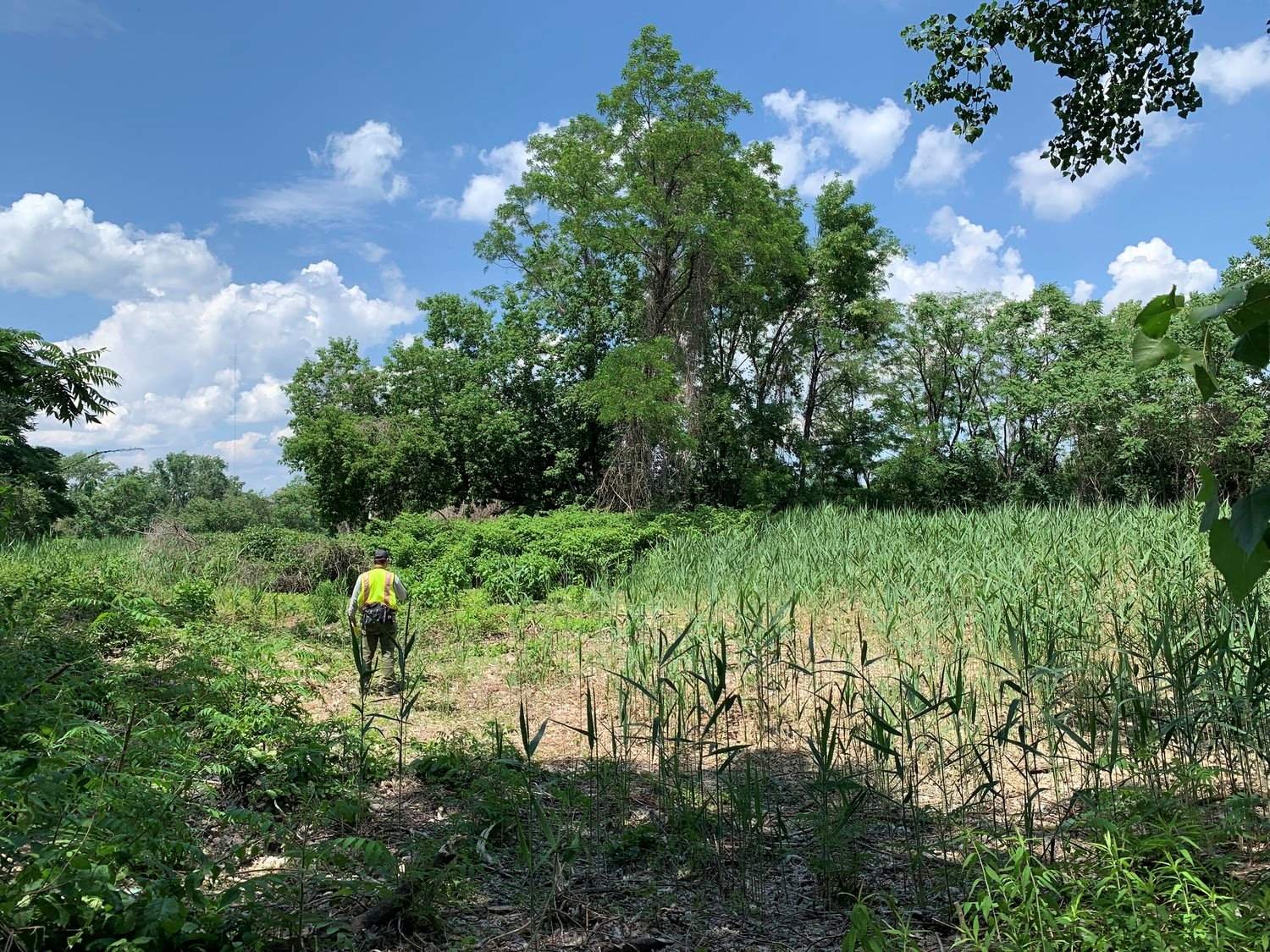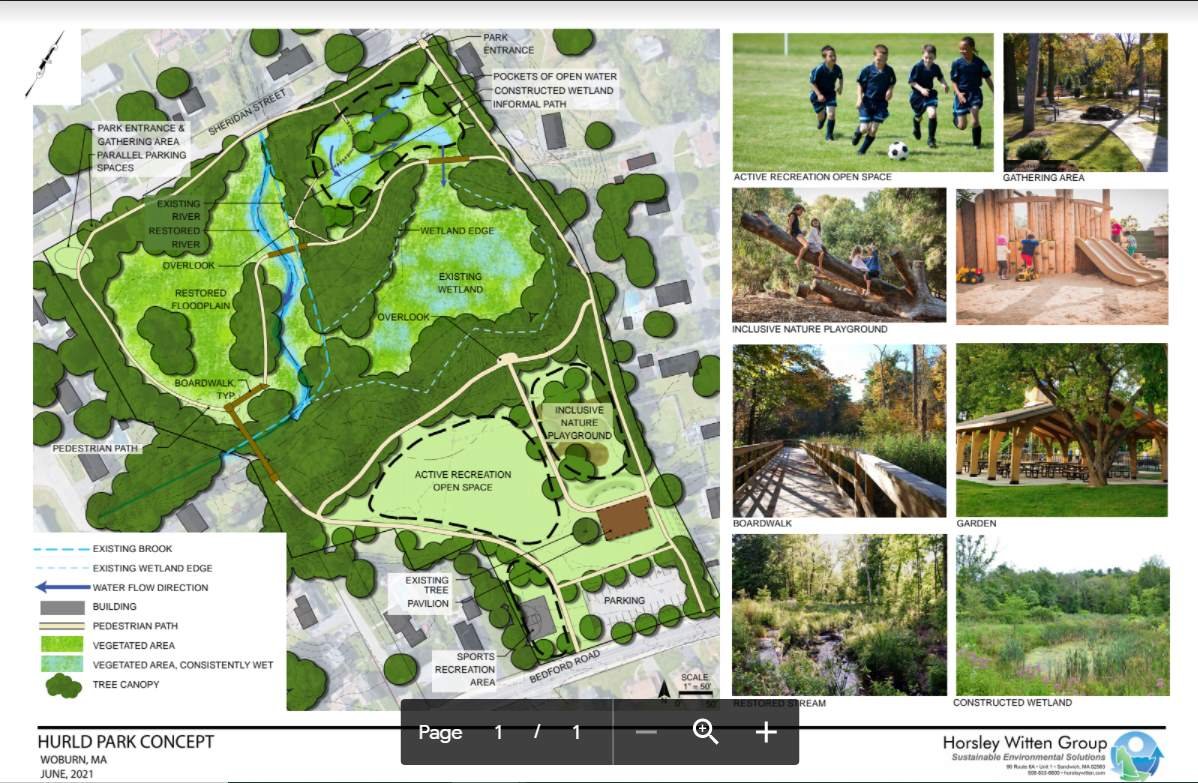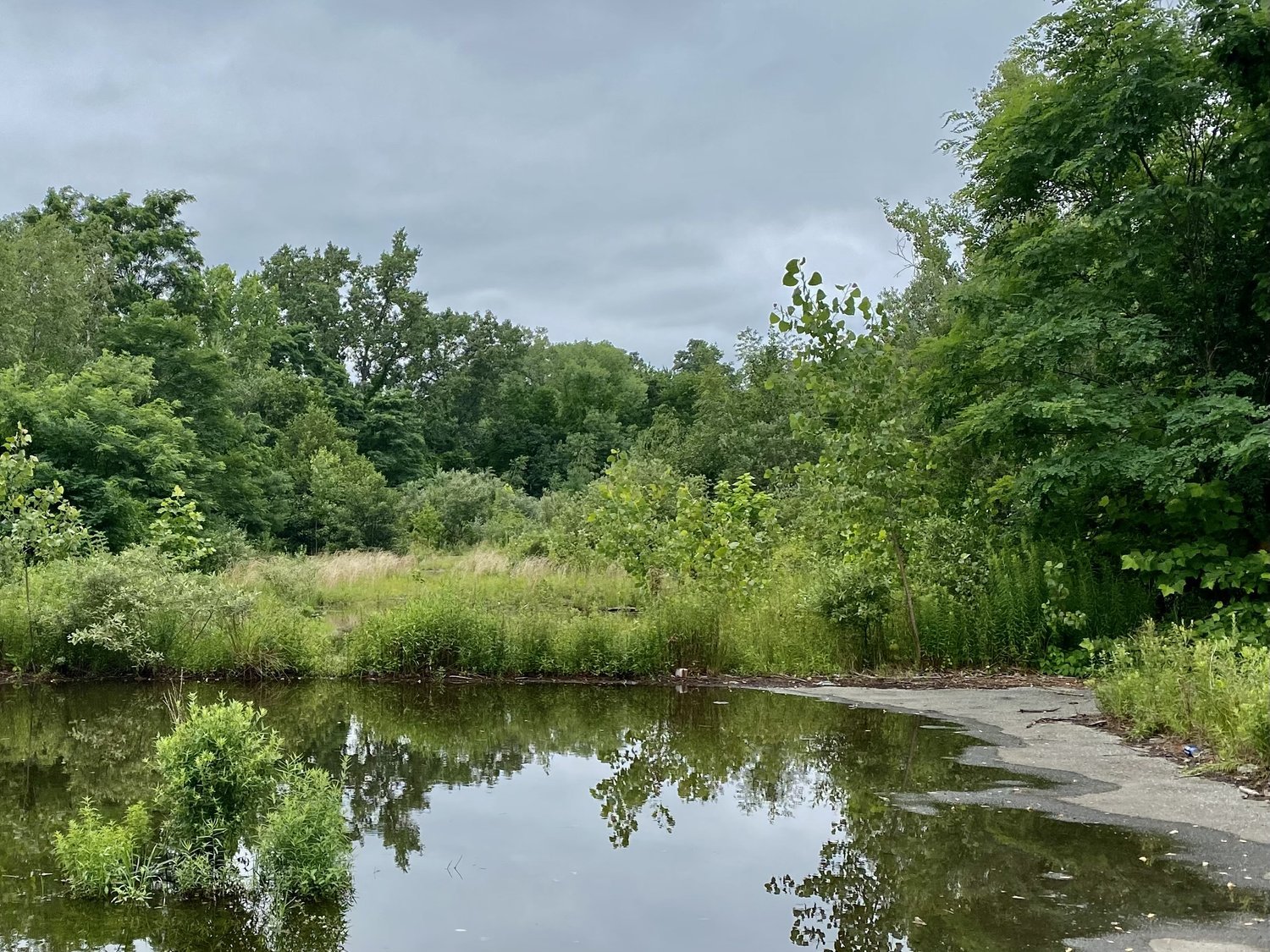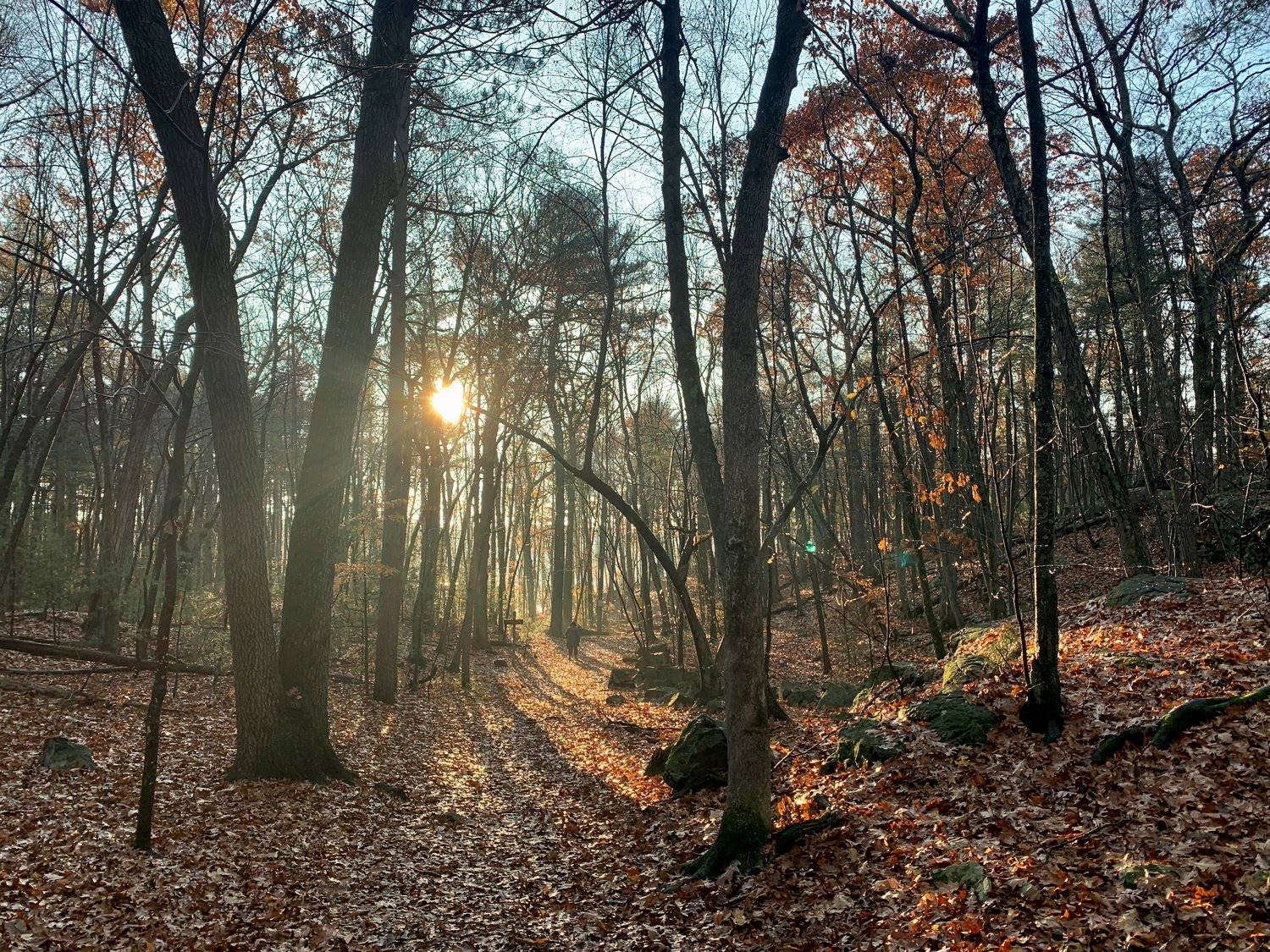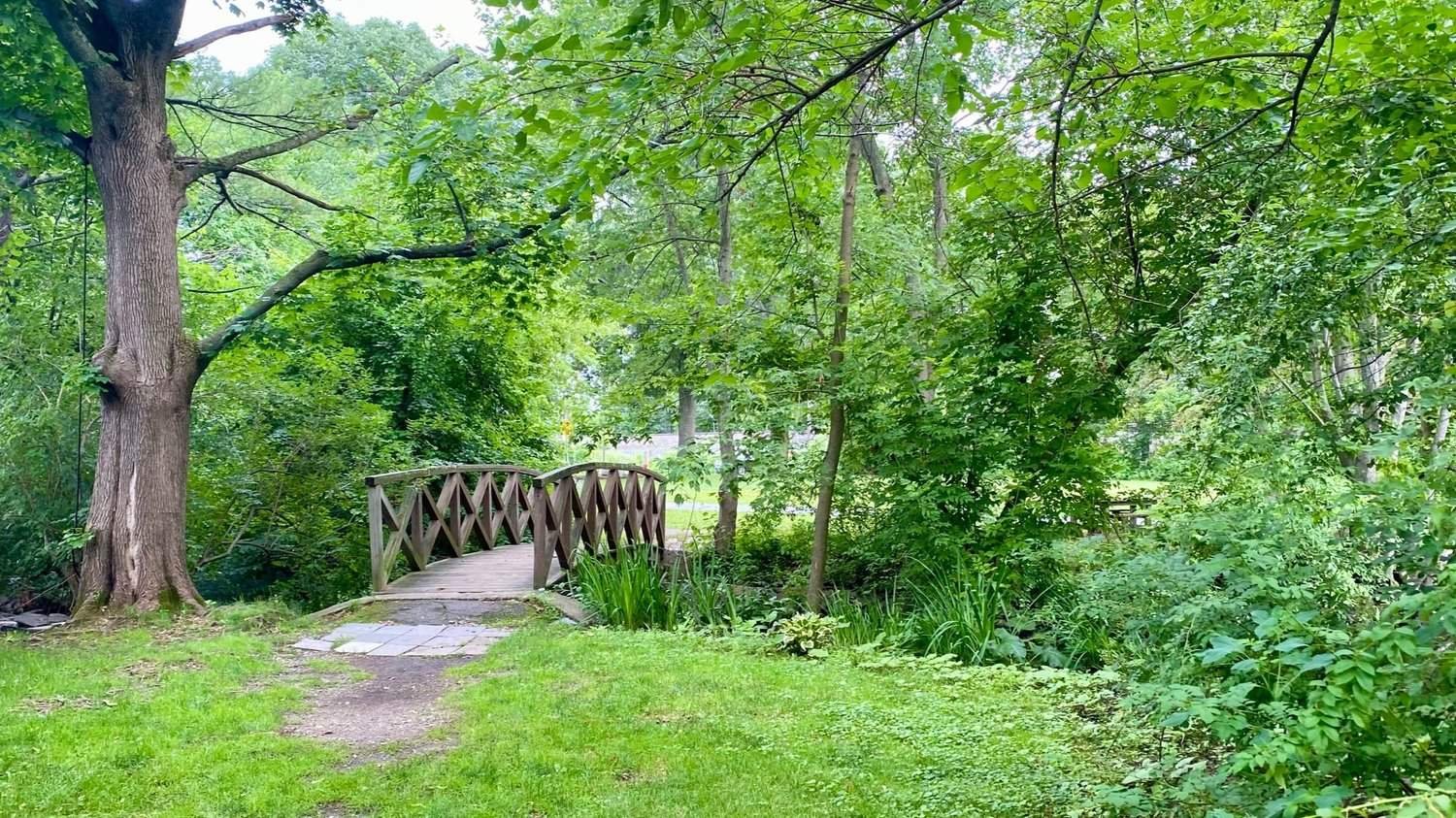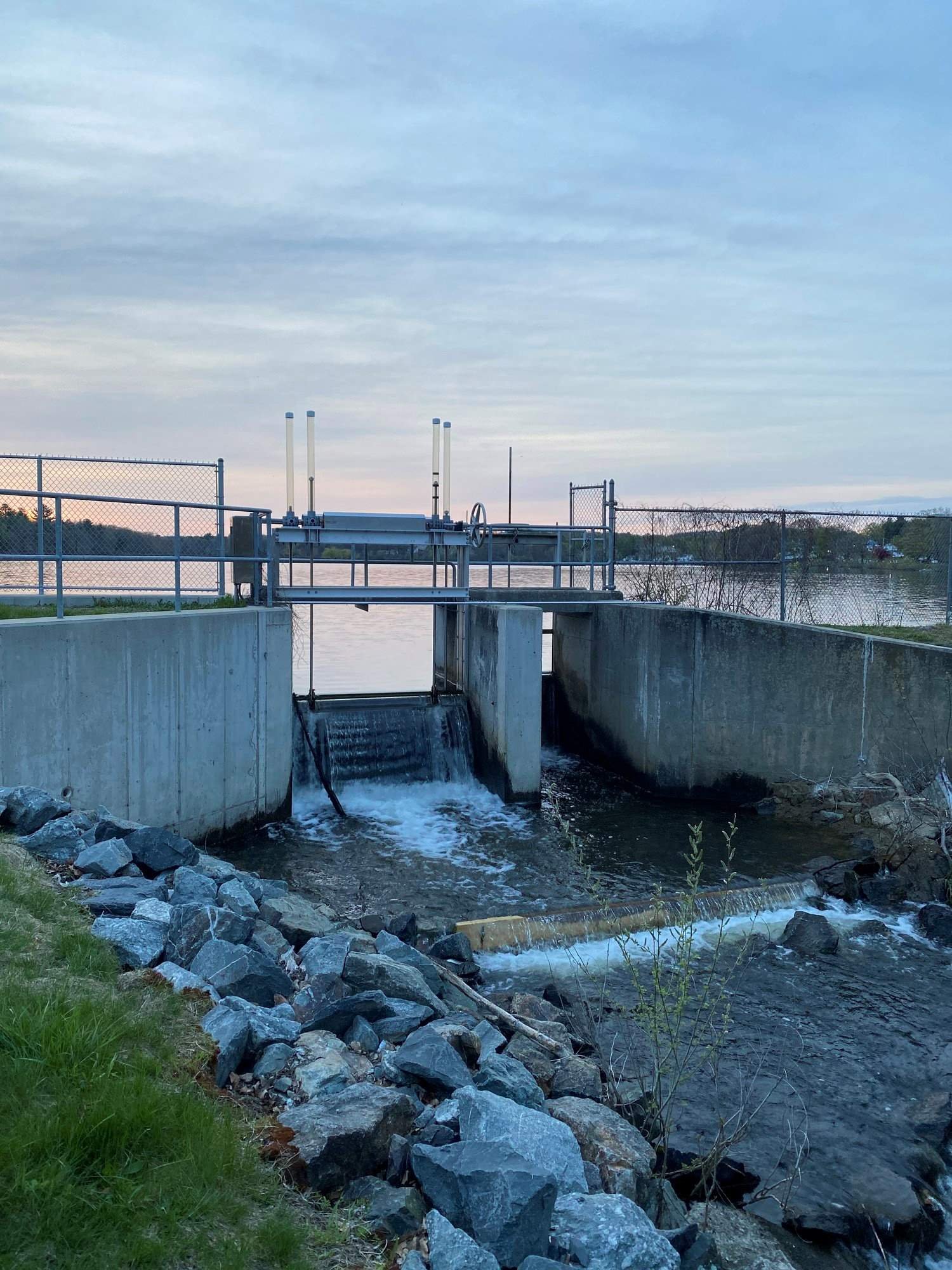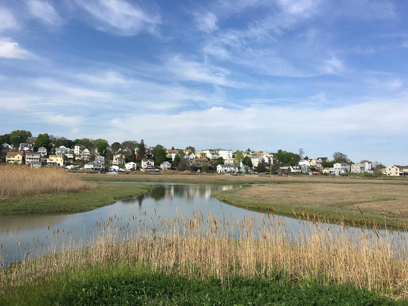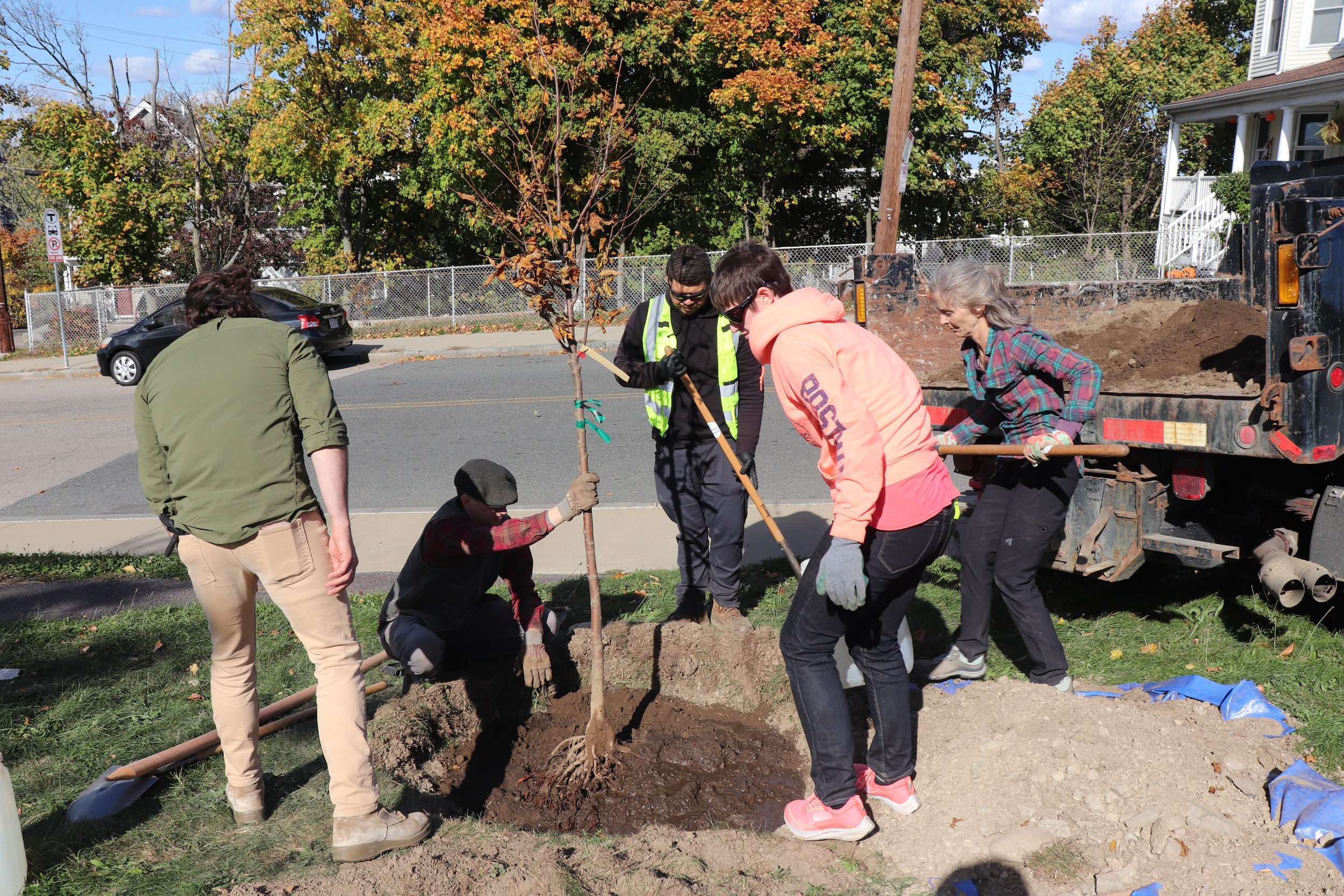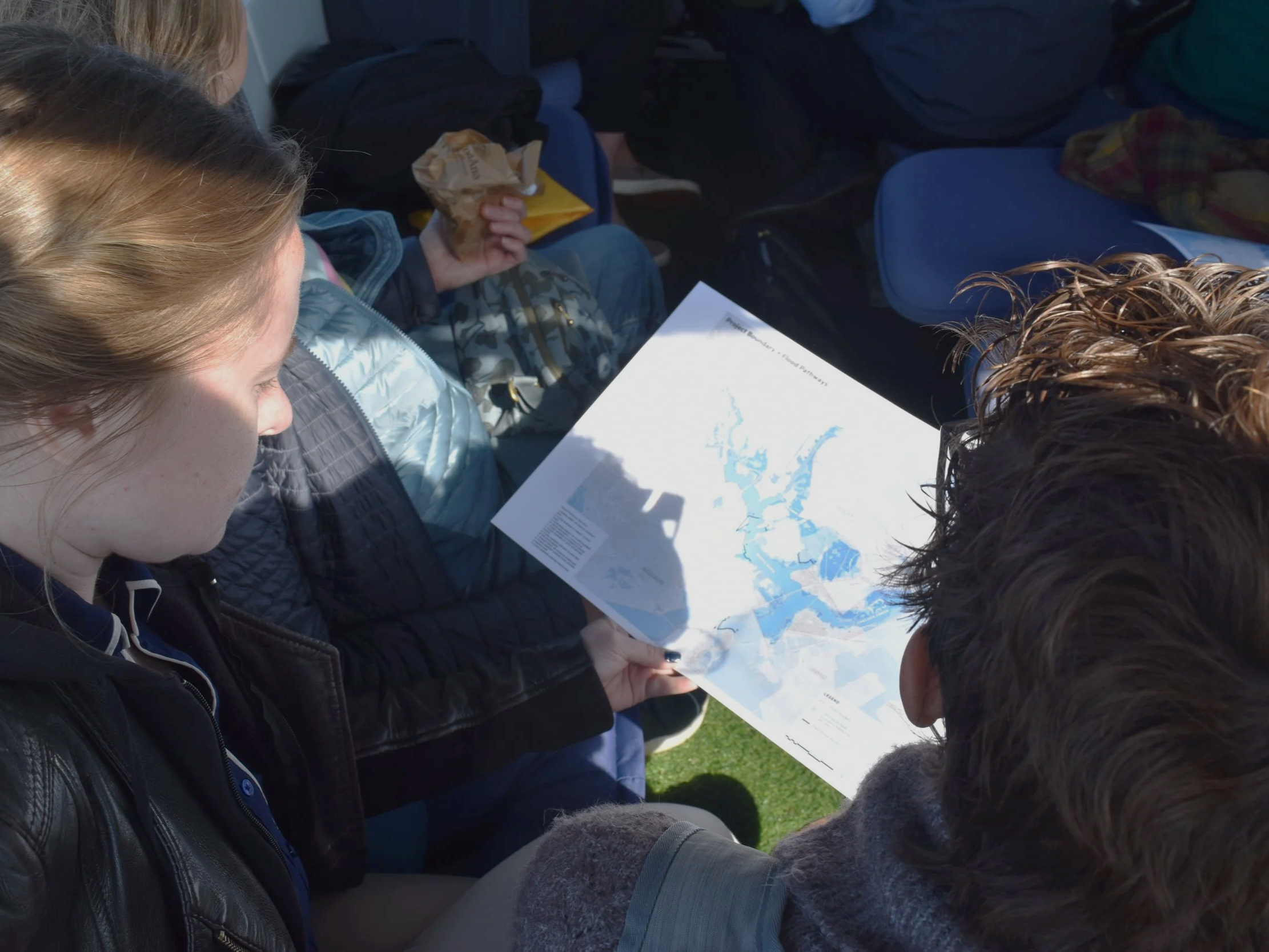Climate Resilience
MyRWA is helping our communities adapt to more intense rainfall, heat waves, extreme storms and the disproportionate impact these have on our most vulnerable residents.
Credit: MyRWA
Wicked Cool Mystic is a regional effort to implement resident-led cooling solutions. Projects include expanding our tree canopy, creating cool outdoor spaces, & improving communications during heat waves.
Credit: MyRWA
The Resilient Mystic Collaborative is a partnership among 20 neighboring communities working to protect our people and places from climate-intensified risks.
Credit: Ryan Kappel
We’re restoring wetlands and salt marsh habitat to enhance flood storage, reduce stormwater pollution, and expand wildlife habitat and outdoor recreation.
Wicked Cool Mystic
The 3pm ambient temperature model created from Wicked Hot Mystic volunteer data.
To help better understand where extreme heat and urban heat islands, MyRWA conducted a heat mapping campaign called Wicked Hot Mystic. Data collected by volunteers in the 21 cities of the Mystic River watershed created a map of heat islands and places people can go to cool off. The results showed that the most urban communities with the highest percentages of low income residents and/or people of color—are the hottest. See the results here!
Work now centers on engaging residents to learn how they experience heat and pursue interventions that they want to see in their communities. With a focus on Chelsea, Everett, Malden and Arlington—we learned residents want to see more trees; shading structures- especially at bus stops and water features like splash pads or water fountains!
More interventions coming!
While continuing to center resident voices, MyRWA is now working to implement local interventions that will provide much needed cooling solutions. Check out some of these projects that we are moving forward to cool our communities:
Credit: Shelly Liebetreu
Expanding our Tree Canopy. MyRWA is working on multiple projects to increase our tree canopy — including partnering with DCR to plant trees in Torbert Macdonald Park in Medford and with the City of Everett to increase tree canopy at Gateway Park; partnering with Everett Community Growers, GreenRoots and our municipal partners in Chelsea, Somerville and Everett to plant 380 trees both on public and private land, and with the City of Cambridge to do a regional tree mortality assessment to determine why our urban trees are not thriving.
The new cooling mural at the Everett Recreation Center. Credit: Kate Jenkins-Sullivan, City of Everett
Creating Cool Outdoor Spaces. Murals, fountains, misters — MyRWA is working with our cities and towns to implement cooling solutions prioritized by residents. As part of this, MyRWA opposes the application of artificial turf in the Mystic River watershed because of its documented impact on natural resources, contributing to ‘heat islands’ and public health concerns. MyRWA’s policy statement on artificial turf fields is here.
Credit: MAPC
Centering Best Practices for Cooling Centers and Emergency Communications with Municipal Partners. MyRWA is working with community based organizations the Municipalities of Cambridge, Somerville and Everett to plan for and build welcoming community centers that will help residents during the increasing heat waves. At the same time, we are partnering the Metropolitan Area Planning Commission to determine how best to communicate with our most vulnerable residents during climate emergencies including heat waves.
2025 Climate Leaders. Credit: MyRWA
Engaging Residents as Climate Leaders & Tree Ambassadors. To help us center resident voices MyRWA is leading two advisory committees that help engage and educate residents about climate and trees.
Resilient Mystic Collaborative (RMC)
Climate change does not recognize city or town boundaries—therefore our efforts to build resilience around the impacts should not either. Convened by MyRWA and ten watershed communities in September 2018 and now led by senior staff from 20 cities and towns and non-governmental partners, the Resilient Mystic Collaborative (RMC) focuses on managing flooding and extreme heat on a regional scale and increasing the resilience of our most vulnerable residents and workers to extreme weather.
Collectively, RMC communities have secured nearly $57 million for climate resilient projects in the Mystic Watershed, with the goal of securing an additional $100 million in public funding over the next three years. This collective and significant action is helping prepare for a stormier, hotter, and less predictable climate future. Both MyRWA and the RMC understand and are committed to climate justice, which recognizes and works to address disparate impact of climate change on vulnerable communities as well as promote a fair distribution of resources to address the impacts of climate change.
Ecological Resilience
MyRWA is currently working with municipalities on ecological resilience projects throughout the watershed. These efforts have the goals of filtering pollutants out of rain and snowmelt, providing flood storage during large rainstorms or storm surges, enhancing paths and trails, and expanding wildlife habitat—especially at Belle Isle Marsh the largest remaining salt marsh in Boston.
